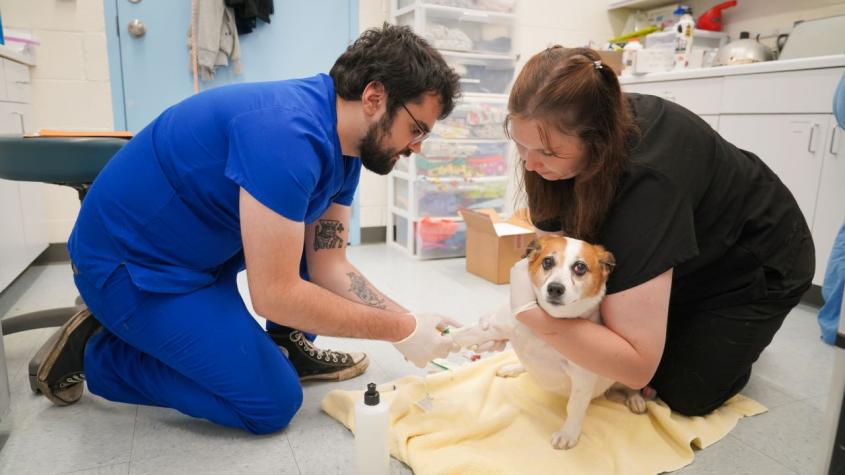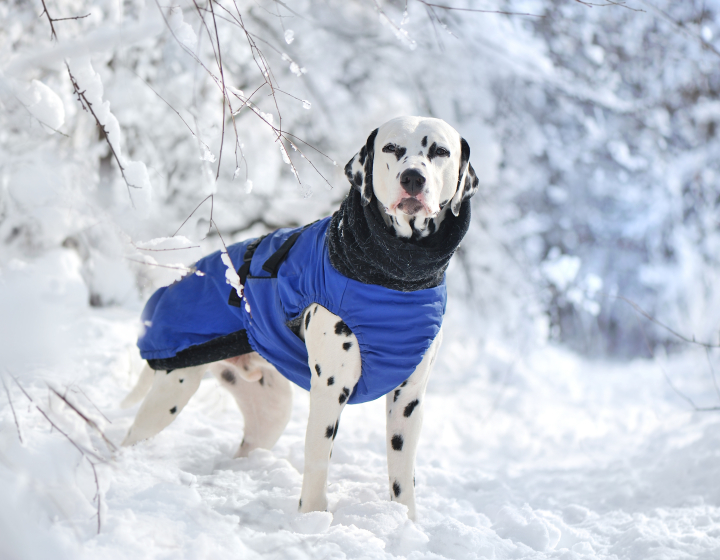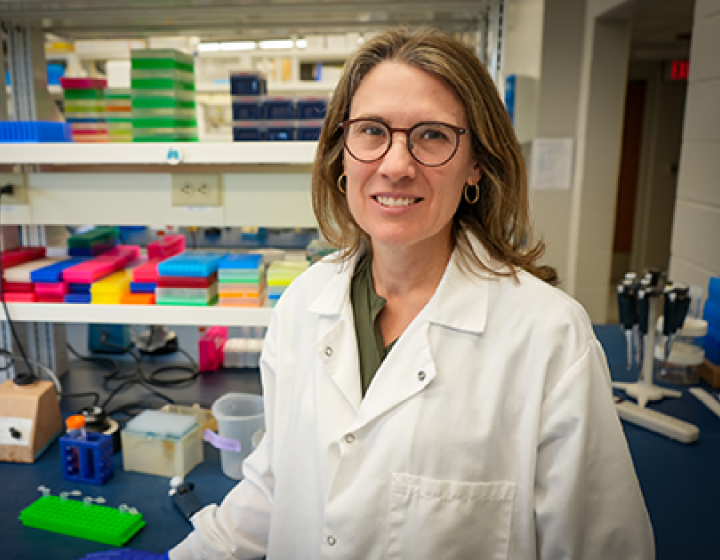Training technicians in shelter medicine
The SPCA of Tompkins County is a very busy place. On a recent surgery prep day, veterinarians, technicians, and other staff moved around each other in a practiced dance to avoid collision in tight spaces as they readied dozens of kittens to be spayed and neutered. Among them were Andrew Rogers and Mike Lapore, participants in Cornell’s Veterinary Technician Preceptorship Program. The licensed veterinary technician (LVT) students were completing a two-week rotation at the SPCA to learn about the ins and outs of shelter medicine – and the vital role LVTs play in keeping everything running smoothly.
“In shelter medicine, technicians play a significantly large role in providing care” said Kelsey Arrison. The LVT for Maddie’s® Shelter Medicine Program (MSMP) at Cornell’s College of Veterinary Medicine (CVM) works with three faculty members, two interns, and one administrator to provide medical and surgical services at the SPCA, which in turn serves as a teaching clinic. When an animal enters the shelter, Arrison or another technician usually conducts the intake exam. “If the animal is deemed healthy, it can be processed from entry to adoption without much doctor interference, other than maybe some verification,” she said.
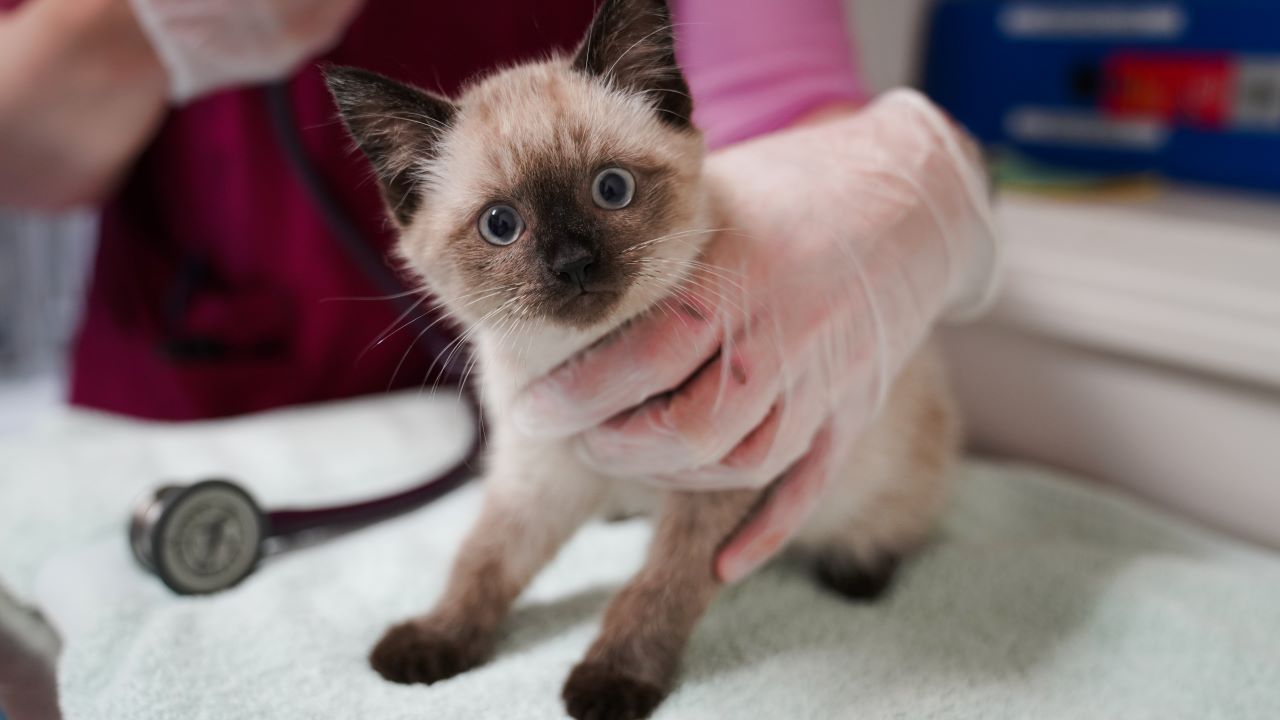
Demand for well-trained LVTs is great across the industry as fewer people are entering LVT schools than ever and the average professional lifespan is only five to ten years, according to Dr. Lena DeTar, assistant clinical professor in the Department of Population Medicine and Diagnostic Sciences and the interim Janet L. Swanson Director of Maddie’s® Shelter Medicine Program. Programs like the preceptorship, she hopes, will help address the issue. “Vet techs are essential in the practice of veterinary medicine, especially shelter medicine, and we can’t do this work without them,” she said. LVTs in shelter medicine frequently play a more managerial role than in other disciplines, as many shelters do not have veterinarians, and an LVT oversees the entire medical program. “They often work at the top of their practice scope,” DeTar said. “It’s a lot of hard work but great for independent-minded energetic people.”
CVM’s Preceptorship Program gives LVT students between the first and second years of their training an opportunity to see whether their interests and personalities might fit the bill. Started in the early 2000s, the program expanded last year to invite two cohorts of preceptors – 18 in total – each summer to spend six weeks exploring small animal, large animal, and wildlife medicine. Participants – most from accredited programs in New York State and Pennsylvania – choose two rotations of two weeks each for hands-on experiences in disciplines as varied as dermatology and anesthesia. This year, Rogers, Lapore, and four other students opted for a rotation in shelter medicine.
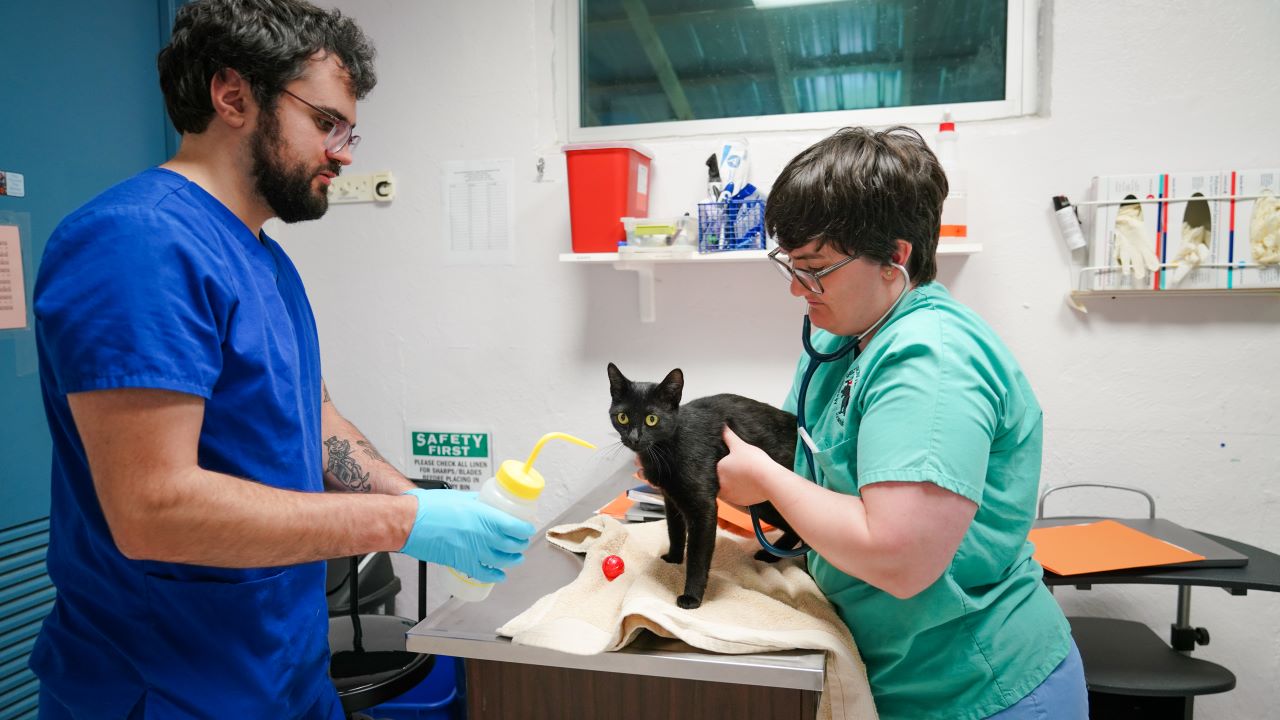
Cornell’s MSMP is supported by Maddie’s Fund®, a national family foundation established by Dave and Cheryl Duffield to revolutionize the status and well-being of companion animals. Laurie Peek, D.V.M. ’96 is a CVM graduate and serves on the Maddie’s Fund® organization’s executive leadership team. "We are very pleased to partner with Cornell University to create one of the leading training grounds in the nation for the next generation of shelter medicine LVTs and veterinarians," Peek said. "These practitioners are critical to addressing access to care in communities across the country, including Tompkins County SPCA." Thanks to these resources, the program is one of only a few in the country offering comprehensive training that goes beyond spay-neuter techniques to include shelter medicine, population management, and forensics. “What that means is that our students, interns and preceptors get to acquire experience and skills not just in high-volume high-quality surgery, but also restraint, medical assessment, behavioral assessment, and understanding how animal ownership and the law intersect,” DeTar explained.
Under Arrison’s supervision, the preceptors got to try their hand at everyday LVT tasks such as intubation, IV catheter placement, intake exams for kittens, surgery prep, and surgical assistance. “My favorite experience so far has been the feral cat clinic I got to be a part of,” said Rogers, who expects to graduate from SUNY Delhi next year. “I was given a lot of responsibility, and my mentors had prepared me for them to the point that I felt comfortable and really got to see what working in the field would look like.” Compared to his other rotation in neurology, which consisted of more observation, this work at the SPCA was particularly hands-on. “We let them do a lot as preceptors, because our animals are very stable, unlike patients in some other departments,” Arrison explained.
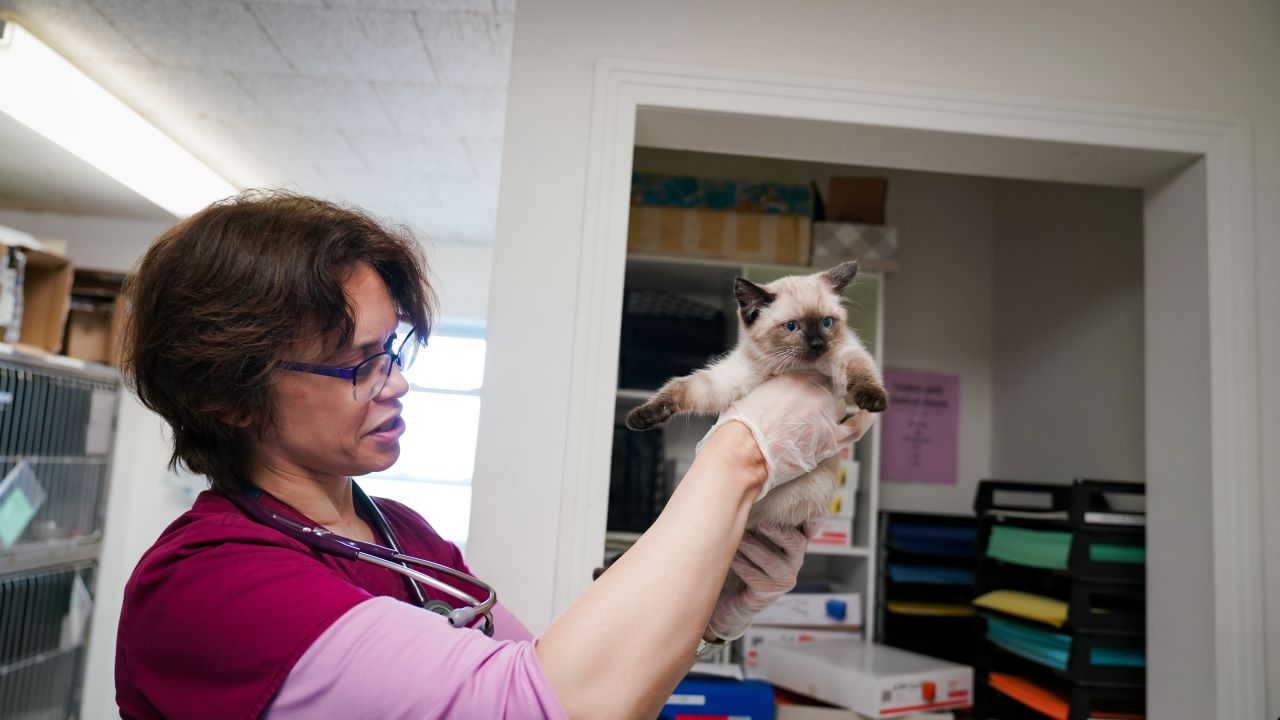
Overall, the preceptorship has helped solidify Rogers’s plans for the future. “It exceeded my expectations in terms of the scale of things I got to do, and it’s given me a much more realistic, less romanticized expectation of what a vet tech’s job looks like,” he said. He hopes to apply for a position at Cornell once he passes his LVT exam. “I love the environment and really enjoy the opportunities it could allow me,” he added.
Rogers would be joining the ranks of 14 former preceptors who have returned to work at Cornell as of 2022. This would certainly please DeTar. “One of the best things about the preceptorship is building a relationship with these students so we can potentially hire them after they are done,” she said.
Cornell University is a proud recipient of funding from Maddie’s Fund® (www.maddiesfund.org), helping to achieve a no-kill nation #ThanksToMaddie.
The SPCA is currently seeking to hire a new technician (as of 9/29/23)
Written by Olivia Hall
Photos by Carol Jennings



